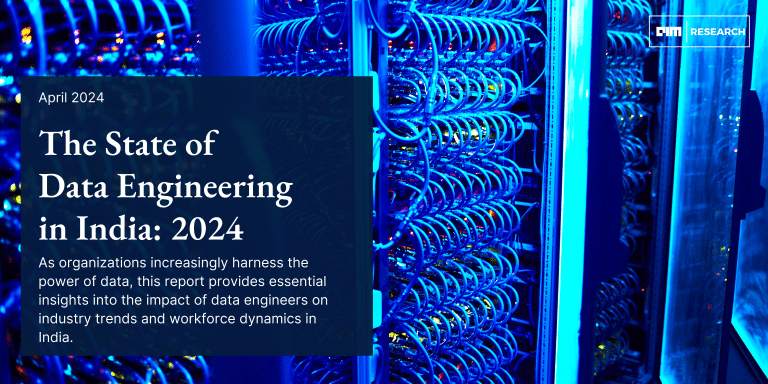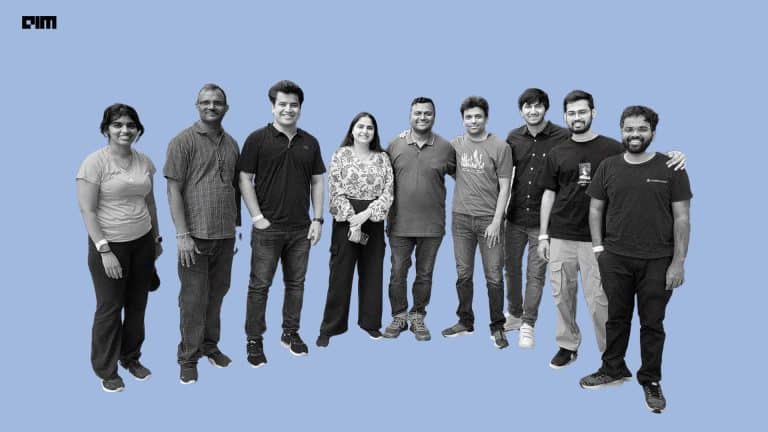Data scientists, AI practitioners, and machine learning engineers are some of the most sought-after and highly paid job roles right now. Due to this, we have seen a massive rush of students and professionals pursuing different courses to break into this well-rewarding field in the recent few years. But, one does not become a data scientist or a machine learning expert overnight. It requires years of rigorous training and crystal clear conceptual clarity to excel in this field, and one can then call themselves a data scientist or an AI expert.
In a country like India with so much competition for jobs, often professionals seem to look for a shortcut to bag such coveted analytics and AI jobs by enrolling on courses or interview preparations that “guarantee” them to crack interviews. Unfortunately, what this mostly results in is superficial knowledge which causes more harm than good.
This fact was recently highlighted by Nitin Aggarwal, senior technical product manager, Cloud AI services at Google, in a LinkedIn post, which has gained much traction. A part of what he wrote said, “In the last few weeks, I was on an interview spree to build my team in India. I met with so many talented people and learned a lot from their experiences. One common theme that I found in the candidates that didn’t get selected is that they prepared for the interviews well but lacked the “real” work.
There were lots of candidates with lots of years of experience. They tried to mould their existing non-AI/ML work as ML work and expect senior levels because of the number of years of experience they had. They did lots of interview prep and attended courses/online preparation classes. But the time I started having a detailed conversation on their projects, the problem started coming up. Answers were very shallow and very textbook-ish. It lacked the practical approach, and you can easily understand that it is coming from some competition/exercise instead of real life.”
Image: LinkedIn
Sprinkle words like AI and popular acronyms in their resume
Biswajit Biswas, chief data scientist at Tata Elxsi, brings an interesting perspective as to why this is happening. He feels that by now, almost everyone knows that the first level of resume scanning is done by bots, and people have understood how these bots work.
Biswas adds, “I kind of echo what Nitin is saying, and I have similar experiences. There is a reason this is happening. People, who want to get shortlisted, sprinkle a few words of AI and popular acronyms and try to build the resumes around that. So, it is natural that a resume will sound – like very AI savvy, but the real truth comes out in the discussion. In senior roles, it is even more, as many seniors are trying to pass on their team’s (sometimes loosely connected) work as theirs, and many managers are not hands-on or get involved in technical problem-solving. They remain comfortable in managing risk and addressing project management stuff (which is also very much needed) but rarely deep dive into code or technical issues. This is never a surprise, and it is not new either.”
Hype around data science plays a huge role
A lot of this has to do with the hype about the field of data science. Expectations of a million-dollar package (media reports of freshers bagging such fat pay packages should be taken with a pinch of salt), accelerated career growth, and a chance to work with cutting edge technologies from the very start in their career often cause job applicants to project to the hiring manager what they are usually not. Venkat Raman, co-founder, Aryma Labs, points out why this is a problem.
- Many companies are in dire need of good talent. The negative thing of professionals moulding non-AI/ML experience as AI/ML experience is that it gets really hard for companies to separate the wheat from the chaff. The amount of additional time a recruiter has to spend discerning this is too much.
- This practice is not a good look at the candidates themselves. Raman, who recruits data scientists and AI practitioners regularly, says he is aware of cases where the companies are miffed by such practices and do not entertain future job applications from such candidates.
Candidates and recruiters must work in sync with each other
This issue that the industry is facing now cannot be solved just by the candidates interviewing for jobs. To solve this hiring problem, both the recruiter and the candidates have to work together. Biswas lists down a few do’s and don’ts the industry must follow while recruiting for such roles.
- Candidates should focus on mentioning what problems they solved and explain the “how” part of it—mentioning keywords, acronyms, well-known frameworks. etc., is just a cliche.
- Similarly, recruiters also should avoid giving the screening job to bots or some non-technical persons. Screening and a first level of short discussion to align the candidate will be useful before proceeding to more serious steps to preserve the bandwidth of senior executives to interview.
- The recruiter should broaden the scope by looking at the potential applicability of the profile and look at a longer-term horizon.
“Shady” institutes are to blame as well
Other than these suggested ways, Raman believes that another issue of “shady” institutes should also be addressed.
He says, “Many aspiring data scientists brand their training experience as ‘Internship’, while in reality, it is more of a cohort learning program with no supervision or guidance from a person in the industry. I would blame these shady institutes more than the aspirants because they are the ones telling them to put on their resume or LinkedIn profile – “Intern at XYZ”. Industry leaders should really call out the problem of “shady” institutes branding their unsupervised cohort training programs as internships.”
A job in the analytics and AI space will be rewarding only when one has the right skill set for it. Otherwise, even if one cracks the interview somehow, they will struggle in the job role if the foundations are not clear. Once a candidate focuses on building real-world experience instead of superficial knowledge, the analytics and AI dream will become a reality.




















































































